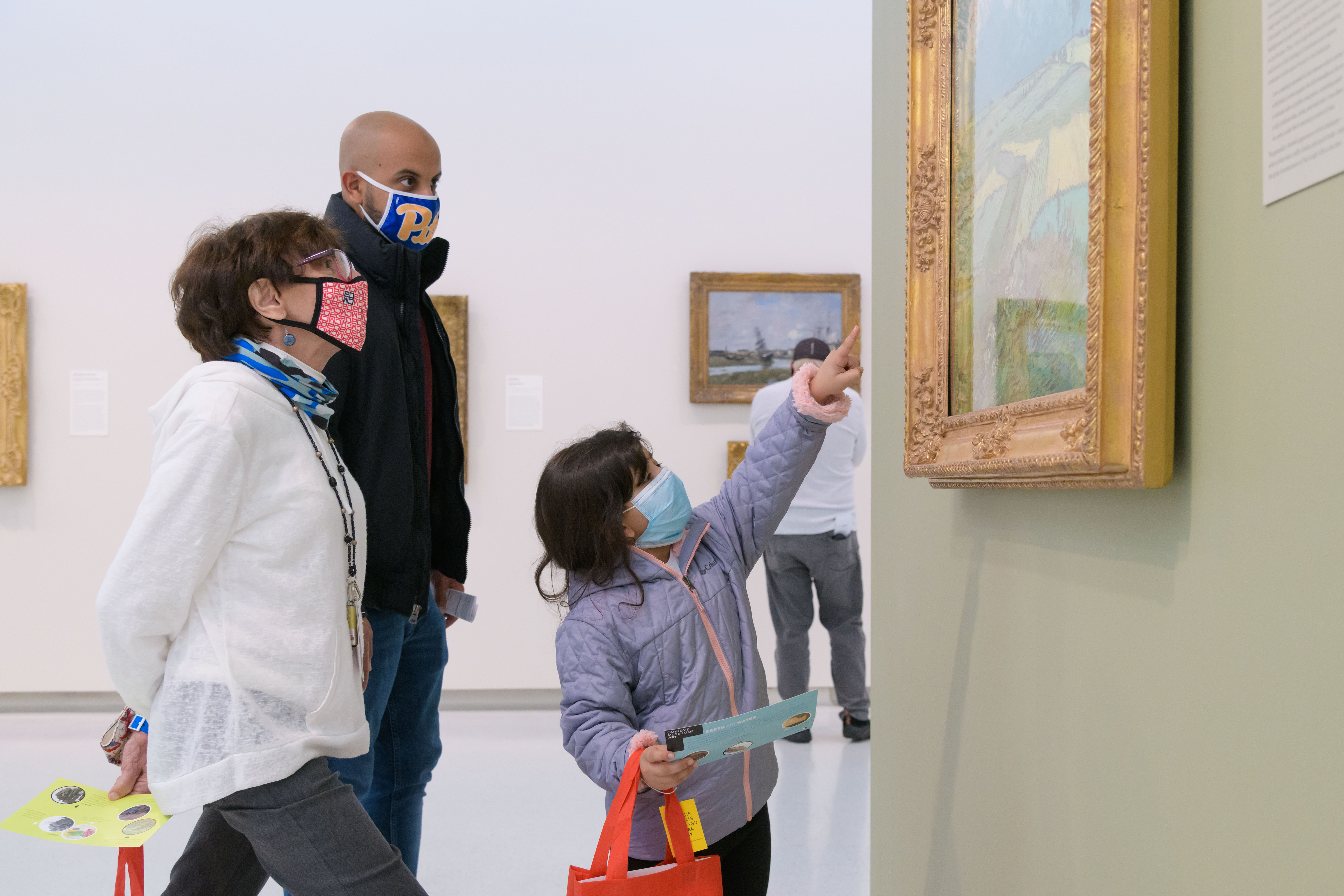The dedicated corps of well-trained volunteer docents continues to be one of the Carnegie Museum of Art’s most valuable resources. Docents lead thousands of visitors through the galleries each year, inspiring visitors of all ages with their insight into the works of art in the permanent collection and special exhibitions.
The docent training program is much like an ongoing art education class, where you will continue to learn and grow. A skilled docent initiates a dialogue and creates connections for visitors in an informal learning environment, successful candidates demonstrate the ability to serve as knowledgeable and skilled facilitators, more so than experts. The most important qualities you need to become a docent are a love of art and people, flexibility, and the ability to work as part of a team.
Requirements for Prospective Docents
The path to being ready to lead tours takes about 10-12 months but you will learn much and make new friends along the way! Carnegie Museum of Art is ready to welcome you! You will be asked to:
- Complete the 18-week Crash Course art history class series.
- Participate in mentoring sessions with current active docents. They are there to help you along the way.
- Complete short writing assignments
- Prepare and give both a 20-minute and an hour-long practice and activation tours.
- Welcome feedback and participate in skill-building sessions.
Docent Responsibilities
- Weekly learning sessions from September through June. These behind-the-scenes sessions are presented by education and curatorial staff to update current practices with works in the permanent collection or in preparation for upcoming exhibitions.
- At least one day per week to guide tours during school tour season and at least one day, bi-weekly for non-busy tour seasons. Vacations and other leave of absences are welcome with advanced notice. Everyone needs a break!
- A commitment of at least two years to the program after activation (which means you are ready to guide!)
- Lead conversations with a variety of visitors, including K–12 students, adults, college students, senior citizens, and accessibility audiences.
- Be self-directed to prepare for tour content and varying audiences.
- Pass a Commonwealth of Pennsylvania background check.
